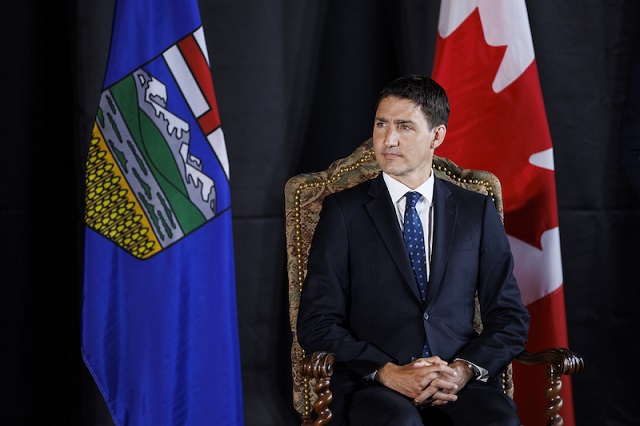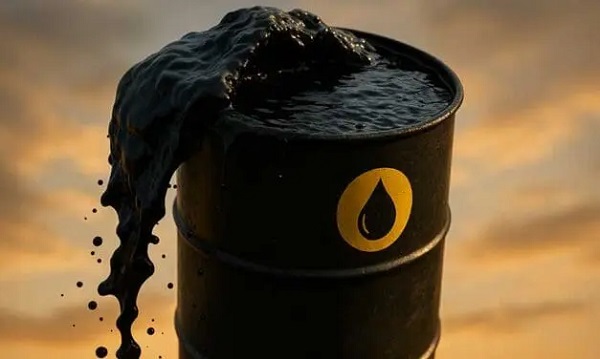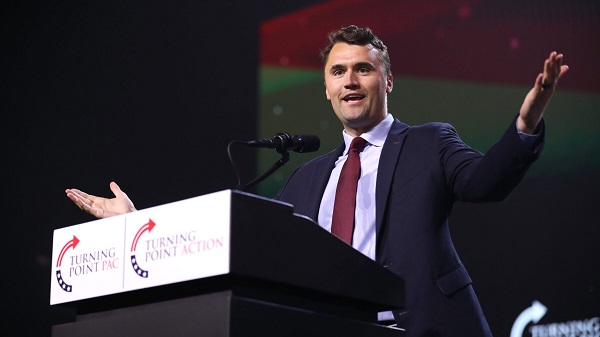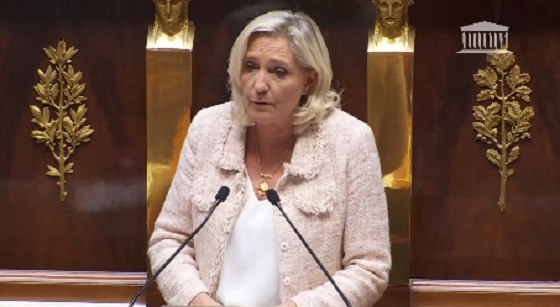Economy
Trudeau has more than doubled Canada’s debt while Canadians get poorer

From LifeSiteNews
46 percent of Canadians are a few hundred dollars away from not being able to meet their financial obligations… 400,000 more Canadians live in poverty now compared to 2020.
Prime Minister Justin Trudeau has more than doubled Canada’s national debt, but Canadian’s quality of life has only decreased.
According to calculations from the Canadian Taxpayers Federation (CTF), Canada’s national debt has more than doubled since Prime Minister Justin Trudeau took power in 2015, reaching a total of $1.239 trillion.
“Canadians can’t afford another decade-and-a-half debt binge,” Franco Terrazzano, CTF Federal Director, said in a . “Trudeau needs to stop wasting so much money and balance the books, because it’s wrong to waste billions on debt interest payments.”
When Trudeau took office in November 2015, Canada’s federal debt was just $616 billion.
Despite this doubling of the national debt, the Trudeau government does not plan to balance the budget until 2040, according to supplementary data from the Parliamentary Budget Office (PBO).
Currently, every Canadian owes $31,000 of the debt, however, interest charges between now and the time the budget is balanced in 2040 will mean that the number is much higher. By 2040, interest charges on the federal debt will have cost taxpayers a whopping $847 billion, meaning each Canadian will owe an additional $18,000.
“Waiting until 2040 to balance the budget is outrageous and the government won’t even hit that target if the economy has a hiccup or politicians can’t say no to new spending,” Terrazzano said. “This government has given taxpayers every reason to believe it will never balance the budget.”
While the national debt has skyrocketed, and the government continues to spend money hand-over-fist, the quality of living for Canadians is plummeting. Instead of addressing this, Trudeau continues to send tax dollars to Ukraine and subsidizing a variety of ideologically motivated causes that provide no material benefit to Canadians.
In July, a survey found that a massive 46 percent of Canadians are a few hundred dollars away from not being able to meet their financial obligations.
Similarly, in June, a government report revealed that 400,000 more Canadians live in poverty now compared to 2020.
LifeSiteNews reported that fast-rising food costs in Canada have led to many people feeling a sense of “hopelessness and desperation” with nowhere to turn for help, according to the Canadian government’s own National Advisory Council on Poverty.
At the same time Canadians are being driven into poverty, housing prices have skyrocketed, with a recent analysis estimating that a Canadian household now has to spend an unprecedented 63.5% of its income to afford a mortgage.
At the same time, criminal incidents under the Trudeau government have increased 20 percent, with critics placing the blame on Trudeau’s “catch and release” policy, which allows dangerous criminals to walk free on bail.
Indeed, this policy has put many Canadians in danger, as was the case last month when a Brampton man charged with sexually assaulting a 3-year-old was reportedly out on bail for an October 2022 incident in which he was charged with assault with a dangerous weapon and possession of a dangerous weapon.
As LifeSiteNews previously reported, a well-known Ottawa think tank warned that Canada’s justice system is unable to keep up with out-of-control crime that has risen sharply in the last few decades to the point where the national murder rate is at its highest in 30 years.
Business
Upcoming federal budget likely to increase—not reduce—policy uncertainty

From the Fraser Institute
By Tegan Hill and Grady Munro
The government is opening the door to cronyism, favouritism and potentially outright corruption
In the midst of budget consultations, the Carney government hopes its upcoming fall budget will provide “certainty” to investors. While Canada desperately needs to attract more investment, the government’s plan thus far may actually make Canada less attractive to investors.
Canada faces serious economic challenges. In recent years, the economy (measured on an inflation-adjusted per-person basis) has grown at its slowest rate since the Great Depression. And living standards have hardly improved over the last decade.
At the heart of this economic stagnation is a collapse in business investment, which is necessary to equip Canadian workers with the tools and technology to produce more and provide higher quality goods and services. Indeed, from 2014 to 2022, inflation-adjusted business investment (excluding residential construction) per worker in Canada declined (on average) by 2.3 per cent annually. For perspective, business investment per worker increased (on average) by 2.8 per cent annually from 2000 to 2014.
While there are many factors that contribute to this decline, uncertainty around government policy and regulation is certainly one. For example, investors surveyed in both the mining and energy sectors consistently highlight policy and regulatory uncertainty as a key factor that deters investment. And investors indicate that uncertainty on regulations is higher in Canadian provinces than in U.S. states, which can lead to future declines in economic growth and employment. Given this, the Carney government is right to try and provide greater certainty for investors.
But the upcoming federal budget will likely do the exact opposite.
According to Liberal MPs involved in the budget consultation process, the budget will expand on themes laid out in the recently-passed Building Canada Act (a.k.a. Bill C-5), while also putting new rules into place that signal where the government wants investment to be focused.
This is the wrong approach. Bill C-5 is intended to help improve regulatory certainty by speeding up the approval process for projects that cabinet deems to be in the “national interest” while also allowing cabinet to override existing laws, regulations and guidelines to facilitate such projects. In other words, the legislation gives cabinet the power to pick winners and losers based on vague criteria and priorities rather than reducing the regulatory burden for all businesses.
Put simply, the government is opening the door to cronyism, favouritism and potentially outright corruption. This won’t improve certainty; it will instead introduce further ambiguity into the system and make Canada even less attractive to investment.
In addition to the regulatory side, the budget will likely deter investment by projecting massive deficits in the coming years and adding considerably to federal debt. In fact, based on the government’s election platform, the government planned to run deficits totalling $224.8 billion over the next four years—and that’s before the government pledged tens of billions more in additional defence spending.
A growing debt burden can deter investment in two ways. First, when governments run deficits they increase demand for borrowing by competing with the private sector for resources. This can raise interest rates for the government and private sector alike, which lowers the amount of private investment into the economy. Second, a rising debt burden raises the risk that governments will need to increase taxes in the future to pay off debt or finance their growing interest payments. The threat of higher taxes, which would reduce returns on investment, can deter businesses from investing in Canada today.
Much is riding on the Carney government’s upcoming budget, which will set the tone for federal policy over the coming years. To attract greater investment and help address Canada’s economic challenges, the government should provide greater certainty for businesses. That means reining in spending, massive deficits and reducing the regulatory burden for all businesses—not more of the same.
Alberta
OPEC+ chooses market share over stability, and Canada will pay

This article supplied by Troy Media.
OPEC+ output hike could sink prices, blow an even bigger hole in Alberta’s budget and drag Canada’s economy down with it
OPEC and its allies are flooding the global oil market again, betting that regaining lost market share is worth the risk of triggering a price collapse.
On Sept. 7, eight of its leading members agreed to boost production by 137,000 barrels per day beginning in October. That move, taken more than a year ahead of schedule, marks the start of a second major unwind of previous output cuts, even as warnings of a supply glut grow. OPEC+, a coalition led by Saudi Arabia and Russia, coordinates oil production targets in an effort to influence global pricing.
This isn’t oil politics in a vacuum. It’s a direct blow to Alberta’s finances, and a growing threat to Canada’s economic stability.
Canada’s broader economy depends heavily on a strong oil and gas sector, but no province is more directly reliant on resource royalties than Alberta, where oil revenues fund everything from hospitals to schools.
The province is already forecasting a $6.5-billion deficit by spring. A further slide in oil prices would deepen that gap, threatening everything from vital programs to jobs. Every drop in the benchmark West Texas Intermediate price, currently averaging around US$64, is estimated to wipe out another $750 million in annual revenue.
When Alberta’s finances falter, the ripple effects spread across the country. Equalization transfers from Ottawa to have-not provinces decline. Private investment dries up. Energy-sector jobs vanish not just in Alberta, but in supplier and service industries nationwide. Even the Canadian dollar takes a hit, reflecting reduced confidence in one of the country’s key economic engines. When Alberta stumbles, Canada’s broader economic momentum slows with it.
The timing couldn’t be crueller. October marks the end of the summer driving season, typically a lull for fuel demand. Yet extra supply is about to hit a market already leaning bearish. Oil prices have dropped roughly 15 per cent this year; Brent crude is treading just above US$65, still well beneath April’s lows.
But OPEC+ isn’t alone in raising the taps. Non-OPEC producers in Brazil, Canada, Guyana and Norway are all increasing production. The International Energy Agency warns global supply could exceed demand by as much as 500,000 barrels per day.
The market is bracing for a sustained price war. Alberta is staring down the barrel.
OPEC+ claims it’s playing the long game to reclaim market share. But gambling on long-term gains at the cost of short-term pain is reckless, especially for Alberta. The province faces immediate financial consequences: revenue losses, tougher budget decisions and diminished policy flexibility.
To make matters worse, U.S. forecasts are underwhelming, with an unexpected 2.4-million-barrel build in inventories. U.S. production remains at record highs above 13.5 million barrels per day, and refinery margins are shrinking. The signal is clear: demand isn’t coming back fast enough to absorb growing supply.
OPEC+ may think it’s posturing strategically. But for Canada, starting with Alberta, the fallout is real and immediate. It’s not just a market turn. It’s a warning blast. And the consequences? Jobs lost, public services cut and fiscal strain for months ahead.
Canada can’t direct OPEC. But it can brace for the fallout—and plan accordingly.
Toronto-based Rashid Husain Syed is a highly regarded analyst specializing in energy and politics, particularly in the Middle East. In addition to his contributions to local and international newspapers, Rashid frequently lends his expertise as a speaker at global conferences. Organizations such as the Department of Energy in Washington and the International Energy Agency in Paris have sought his insights on global energy matters.
Troy Media empowers Canadian community news outlets by providing independent, insightful analysis and commentary. Our mission is to support local media in helping Canadians stay informed and engaged by delivering reliable content that strengthens community connections and deepens understanding across the country
-

 Frontier Centre for Public Policy2 days ago
Frontier Centre for Public Policy2 days agoEvery Child Matters, Except When It Comes To Proof In Kamloops
-

 Crime2 days ago
Crime2 days ago‘Radicalized’ shooter dead, two injured in wake of school shooting
-

 Crime2 days ago
Crime2 days ago“Hey fascist! Catch!”: Authorities confirm writing on alleged Kirk killer’s bullet casings
-

 J.D. Tuccille2 days ago
J.D. Tuccille2 days agoAfter Charlie Kirk’s Murder, Politicians Can Back Away From the Brink, or Make Matters Worse
-

 International2 days ago
International2 days agoCharlie Kirk Shooting Suspect Revealed: Here’s What His Ammunition Said
-

 Daily Caller1 day ago
Daily Caller1 day ago‘You Have No Idea What You Have Unleashed’: Erika Kirk Addresses Supporters For First Time Since Kirk’s Assassination
-

 espionage18 hours ago
espionage18 hours agoInside Xi’s Fifth Column: How Beijing Uses Gangsters to Wage Political Warfare in Taiwan — and the West
-

 Health2 days ago
Health2 days agoCanadians left with no choice but euthanasia when care is denied









